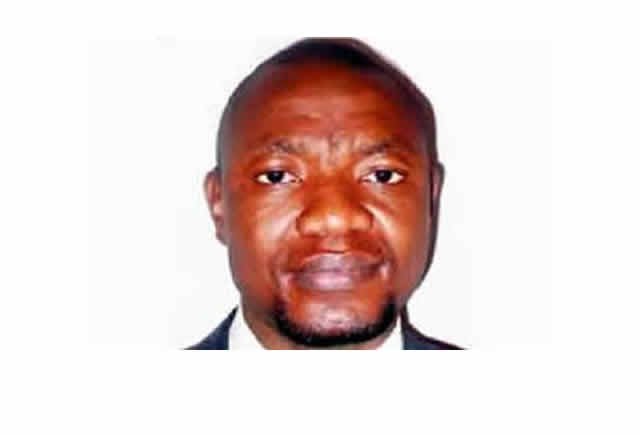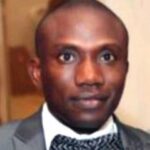
Anyone following events in the nation’s polity would not be hard to convince as to the manifest reality that money is now a critical item in the national discourse. We just cannot circumvent the issue. It will pop up in every direction you look. The country is cash-strapped to the extent that we may not be able to fund a single capital project next year. Yet, politics requires money and so the candidates must source for it to carry on their electioneering campaigns. They used to share dollars; they will surely do it again. Indeed, some are now raising the funds outside the shores of Nigeria. This is another brewing brouhaha.
There is yet another interesting development, which will serve the nation a lot of good. Still, on money, civil society is now looking in the right direction. When I say civil society, I mean the ones whose work I have followed in the environmental sector, especially as it pertains to adding value during electioneering campaign seasons. To me, this is a sign that we may likely get it right this time around. Politicians used to promise to transform the eco-sector but they do the opposite when they win elections. Now, they will no longer bamboozle us with fake promises. We know where to look. We are following the money, first.
An aside. I have one word of advice for those Nigerians who are tempted to lose hope in this country. Don’t! There is hope. The future is bright, young and vibrant. If you look around, there are many young Nigerians doing great things that will soon snowball into a national transformational milestone, perhaps, a revolution.
Last week, a coalition of civil society organisations called on the presidential candidates of the All Progressives Congress, Bola Tinubu; the Peoples Democratic Party, Atiku Abubakar; the Labour Party, Peter Obi, and the New Nigerian Peoples Party, Rabiu Kwankwaso, to publicly declare their assets ahead of the 2023 general elections. The coalition said the lack of public data on the assets of potential political aspirants provides an avenue for opacity and a lack of accountability, thereby fuelling political corruption.
The CSOs, which include Accountability Lab Nigeria, Connected Development, Socio-Economic Rights And Accountability Project, BudgIT, Centre for Journalism Innovation and Development, PLSI, Yiaga Africa and Enough is Enough, said the call became imperative to ensure politicians do not enrich themselves and their cronies while holding public offices.
Speaking on behalf of the coalition, the Chief Executive of Connected Development, Hamzat Lawal, said there was a need for all the presidential candidates, government and critical stakeholders to prioritise accountability issues in government processes, fiscal transparency and on plans to strengthen anti-corruption agencies and address gender challenges.
“Despite the existence of a legal framework for asset declaration for political office holders, the level of compliance is unknown as data on asset declaration for office holders is not available to the public. The lack of public data on the assets of potential political aspirants provides an avenue for opacity and a lack of accountability; thereby fuelling political corruption…. In all of this, to strengthen democracy in Nigeria through inclusive and accountable leadership with integrity and enhancing public trust in governance, we are calling all political parties and political aspirants to publicly declare their assets.”
Now, let us concentrate on the coalition’s spokesperson, Lawal of CODE. The social accountability organization he founded in 2012 was conceived as a direct response to the environmental disaster that befell the country in Bagegga, Zamfara State, where more than 400 children died from lead poisoning. Hamzy, as he is popularly called, ignited a global digital campaign—#SaveBagegga—calling on the government to release the required funds to clean up the community in order to prevent further deaths and environmental contamination. It was this spirit of ensuring the deployment of budgeted resources for societal intervention that later inspired the initiation of CODE’s flagship project, Follow The Money.
The project has grown over the past decade. The FTM team, which now includes a network of journalists, lawyers and more than 7000 volunteers, identifies development projects and subsequently sends Freedom of Information letters to the officials in charge. Upon receipt of project details, including the total funding allocation, a bill of quantities and the proposed implementation schedule, the team transmits the information to the beneficiary community. Because of the visible impact and the money saved for the government and the people, FTM now has a presence in nine African countries, Haiti, Pakistan and making expansions in Europe and other parts of Asia.
During the last general elections of 2019, CODE launched a project that required politicians to pledge toward implementing water, sanitation and hygiene projects when they enter office, tagged #Vote4WASH. Launched in November 2018 in partnership with WaterAid, #Vote4WASH was a national campaign rooted in Goal 6 of the Sustainable Development Goals which calls for transformative budgetary provisions, funding and investment in WASH-related projects in schools and communities. It wanted water, sanitation and hygiene to dominate 2019 election campaigns and political conversations, especially at sub-national levels of government.
From personal observation, #Vote4WASH did not have a radical impact on the sector. Firstly, it was only able to get the pledge of “small contenders.” Secondly, it did not change the way politicians viewed ecological matters. Corruption does not spare the environmental sector; in fact, it is this sector that suffers more from corruption. For instance, the nation’s Ecological Fund remains a “ghost fund” where its spending and disbursement are shrouded in arrant opacity. The politicians use it as a slush fund. And even when there are genuine ecological concerns and funds budgeted to be released, they usually get stuck in the pipework. This was what the government of those days wanted to do in Bagegga before Hamzy and his friends came into the picture.
One is then glad to know that in the upcoming 2023 election, CODE and colleagues are looking beyond encouraging politicians to engage the environment. Instead, they are beaming their spotlight on the pockets of the politicians, especially on the big contenders from the big parties.
Most importantly, we must never miss the fact that CODE is entirely youth-oriented. With a 35-year-old CEO and one of its Board of Trustees members, a 17-year-old student, one must accept that Nigeria is not totally off the mark of progress. It is truly refreshing to see strategic thinking in the sector. Take for instance, in 2021, in collaboration with Ford Foundation, CODE supported local leaders in Rivers State’s grassroots villages to demand greater accountability for resources allocated to them. The campaigns were born out of a need to combat pervasive corruption, poor accountability and the negligence of community development all of which have amounted to years of under-development, exposure to hazardous health risks due to oil substance leakages into water supplies and the sheer impact of these on livelihoods and the quality of life.
After countless Freedom of Information Letters and requests to see the Executive Governor were ignored, they deployed social media and active citizens’ engagement which triggered the government’s response on the status of 3 projects that have now been revived.
This is the drive of Follow The Money, which I foresee shall revive the almost-dying Nigerian spirit. Young people must insist that transparency begins today, and not after the elections were won and lost. The environmental sector can only be transformed by politicians who are ready to have the spotlight beamed on everything they have. This is our right, and as Hamzat Lawal recently proclaimed, fighting “corruption is a human right”!





